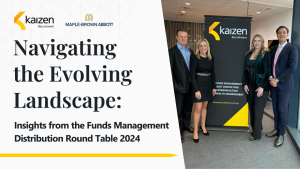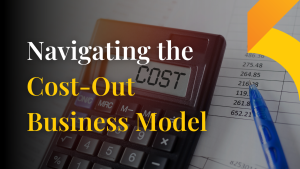The Psychometric Test – What Is It? Why Do Employers Use It? How To Prepare For It
You have applied for your dream job. Congratulations, your application has been accepted. You then complete two or three interviews, and you might even have completed a written assessment or a financial modelling test. Then you have one final hurdle to clear….the dreaded psychometric test.
This test puts more fear into candidates than anything else during the recruitment process and the psychometric test is usually very poorly explained by all stakeholders involved (HR, hiring managers, recruitment agencies and testing providers).

What is it?
Simply put a psychometric test or assessment is a standard and scientific method used to measure an individual’s mental capabilities, behavioural style and ability to perform the job. From my experience the test typically assesses abstract, numerical, verbal ability and personality profiling (cultural fit). Importantly, the candidates’ overall ‘fit’ should be considered not just in regard to the role, but also in regard to the team and the organisation.
Why do organisations use it in their recruitment process?
Trudy Greaves from Zenith Investment Partners explains…..
“We include the psychometric assessment as one component in our overall recruitment process. The assessment provides in depth analysis around potential counter productive work behaviours which are often not evident throughout the interview process.
Having this information before we conduct reference checks, gives us greater clarity around the specific areas we need to explore. We are provided with suggested situational based reference check questions that allows greater detail around specific scenarios and how the person dealt within those parameters. We have found that this has provided us with greater clarity around the candidate and their fit to the role and our organisation.
It’s hard for candidates too, who we really like and think they are a great fit, but then you get to assessment results and we find out about potential issues which we had not seen.
This however is why we undertake this as part of our entire process as it provides us with a bigger picture about potential employees, what to look out for in their behaviour, how they might be best managed if you do recruit them.
Since making the test a compulsory component of our recruitment process our strike rate with getting the right candidates from an organisational and motivational fit has been spot on.”
Many organisations won’t use psychometric assessments it in their recruitment process, as its costly, usually around $1000 – $2000 per assessment. Testing providers like Deliberate Practice will always argue that it’s a small price to pay compared the cost of a bad hire.
How important are the results in comparison to the rest of the recruitment process?
It is not wise to make hiring decisions based solely on the results of a psychological assessment. It is one cog in the entire process which collectively gives organisations the best tools to make the right choices.
Trudy Greaves from Zenith Investment Partners further explains….
“The results are very important and should not be underestimated. This is part of our overall process and as such needs to have the appropriate amount of weight and balance as does any other component of the process. We look at academic results, how personable they are in interview, how open and honest they are with sharing experiences and thoughts in the interview, we conduct written tests and peer interviews as well as the psychometric testing.
We have had some results which have had some key behaviours highlighted to us, however we have proceeded to hire stage with those candidates once we have had an opportunity to explore those areas further. The other thing to remember is that you also gain an insight into how that person may perform in different environments, react to change, how regularly they may need feedback and the best way to manage them.
For us the results are not left at the hire stage, this can be a great management and professional development tool as well.
On the flip side there are many which we do not even proceed to reference check if the results highlight certain issues.”
How do you prepare for it?
Don’t be rushed! I have seen this too many times, as recruitment timeframes blow out too often HR or hiring managers want candidates to drop everything and make themselves available to do the assessment immediately. Don’t!
Don’t do the test after a busy day when you might be mentally fatigued or preoccupied with the day’s events. Do it on the weekend after you have had time to prepare.
Insist on the testing agency to provide practise examples and practise, practise, practise before sitting the test. If you are like me it’s probably been 15 years since you had to do multiplication or long division without a calculator. Unfortunately, I have seen many financial services professionals who are supposed to be highly numerate fail this test than I care to remember.
There are plenty of practise assessments to use online, so be sure to do some research and prepare before taking the assessment.
Good luck and I sincerely hope this article helps explain the importance of the psychometric assessment and how to best prepare for it.
Matt McGilton – Director
Kaizen Recruitment specialises financial services recruitment across funds management, wealth management, superannuation, investment consulting and insurance. We are based in Melbourne and Sydney. For assistance or further information please telephone our office at +61 3 9095 7157 or submit an online form.
Like what you see?
Please feel welcome to join
Kaizen Recruitment’s mailing list










